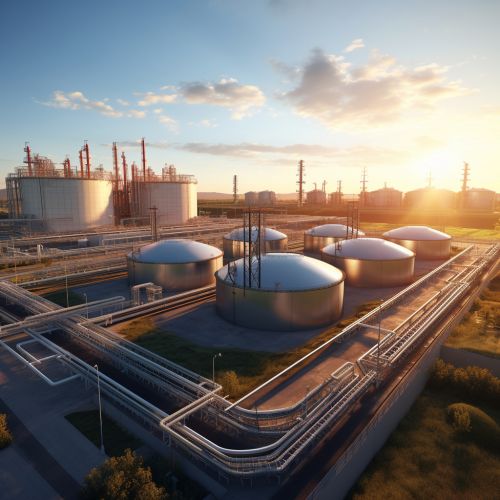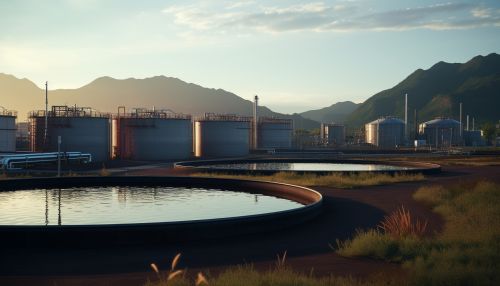Industrial wastewater treatment
Introduction
Industrial wastewater treatment refers to the processes used to treat water that has been contaminated by anthropogenic industrial or commercial activities prior to its release into the environment or its re-use. Most industries produce some form of wastewater, although the amount and the pollutants contained in it can vary greatly.
Sources of Industrial Wastewater
Industrial wastewater can come from a variety of sources. These include manufacturing and chemical processes, as well as the cleaning and washing of equipment and facilities. Some of the most common sources of industrial wastewater include the food and beverage industry, the chemical industry, the pulp and paper industry, and the metal industry.


Types of Pollutants
Industrial wastewater can contain a wide range of pollutants. These can include heavy metals, organic compounds, oils, greases, acids, alkalis, solvents, and pesticides. Some industries also produce wastewater that contains radioactive waste or pathogens.
Industrial Wastewater Treatment Processes
There are numerous processes that can be used to treat industrial wastewater. The choice of process will depend on the type and concentration of pollutants in the wastewater. Some of the most common treatment processes include:
Physical Treatment Processes
Physical treatment processes are used to remove solid pollutants from wastewater. These can include sedimentation, filtration, and flotation.
Chemical Treatment Processes
Chemical treatment processes are used to remove or neutralize pollutants that are dissolved in the wastewater. These can include coagulation, flocculation, and chemical precipitation.
Biological Treatment Processes
Biological treatment processes use microorganisms to break down organic pollutants in the wastewater. These can include activated sludge processes, trickling filters, and rotating biological contactors.
Regulations and Standards
In many countries, the discharge of industrial wastewater is regulated by environmental protection agencies. These agencies set standards for the quality of wastewater that can be discharged into the environment, and they can also require industries to treat their wastewater before it is discharged.
Challenges and Future Directions
Despite the existence of effective treatment processes, the treatment of industrial wastewater remains a significant challenge. This is due to a variety of factors, including the increasing volume of wastewater produced by industrial activities, the increasing complexity of industrial pollutants, and the high cost of treatment processes. In the future, it will be necessary to develop more efficient and cost-effective treatment processes, as well as to implement more stringent regulations to reduce the production of industrial wastewater.
